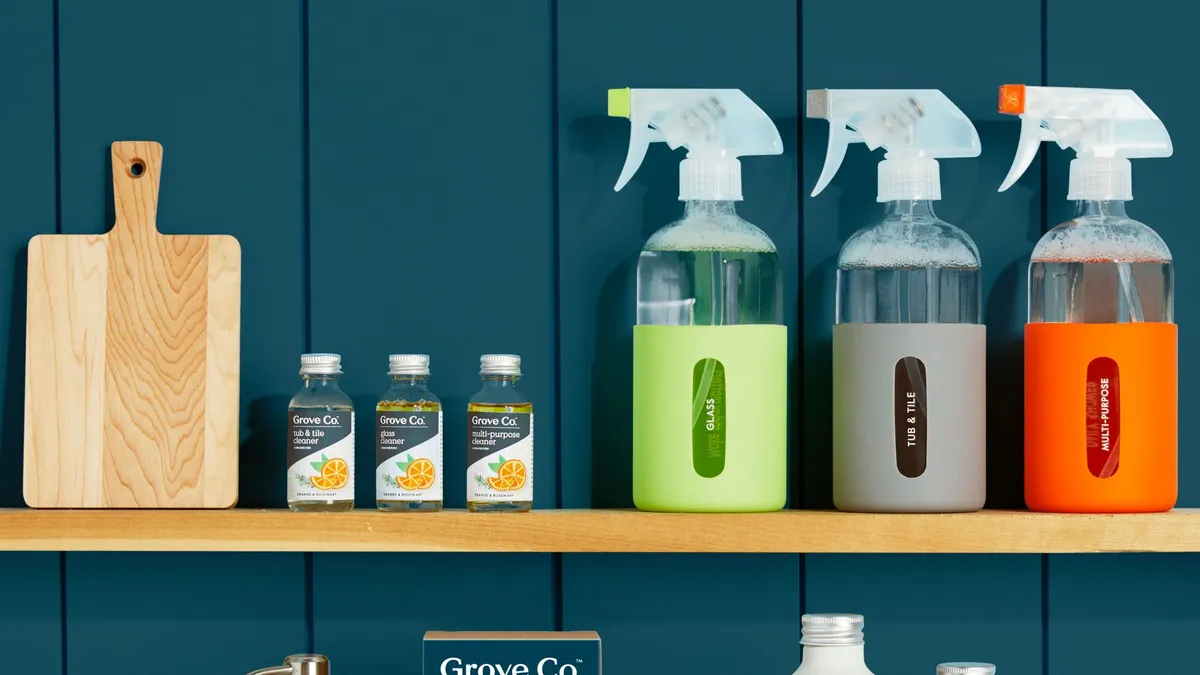Dive Brief:
- Grove Collaborative received notification from the New York stock Exchange on Dec. 14 that the company is no longer in compliance with the stock exchange’s continued listing standards around minimum average share price. NYSE requires companies to have an average closing share price of at least $1.00 over a 30-day trading period.
- The company’s stock was trading at 25 cents at press time. Grove has six months to regain compliance with NYSE’s listing standards, according to a Tuesday filing with the Securities and Exchange Commission.
- Shares will continue to be traded under the ticker “GROV,” but will be designated with “.BC” to represent that the company is not in compliance with NYSE’s listing criteria.
Dive Insight:
The delisting notice comes just six months after Grove Collaborative’s shares began trading on the New York Stock Exchange.
A little over a year ago, the company inked a deal to go public with Richard Branson’s Virgin Group Acquisition Corp. II, a special purpose acquisition company. At the time, the companies said the merger valued Grove at $1.5 billion, and they expected proceeds of up to $435 million.
Just before making its public debut in June, Grove Collaborative cut its long-term growth targets by nearly half, citing macro trends like inflation and consumers reverting to pre-pandemic behaviors.
Last month, the company reported third-quarter net revenue fell more than 18% year over year to $77.7 million. Grove improved its operating loss during the period to $22.6 million from $36.2 million last year, and it swung to a net profit of $7.7 million from a loss of $37.5 million in the year-ago period. The company raised its guidance for the full year, now expecting net revenue between $313 million and $320 million, up from $302.5 million to $312.5 million.
The delisting notice comes as investors take a closer look at direct-to-consumer brands’ financial performance, particularly when it comes to operating profitably. Other publicly traded DTC brands, including Wayfair, Allbirds and Warby Parker, have struggled with reaching profitability as challenges around selling goods primarily online becomes increasingly apparent.
The company, which was launched in 2016, has grown its retail presence through wholesale partnerships with Target, Kohl’s, CVS and others.
















